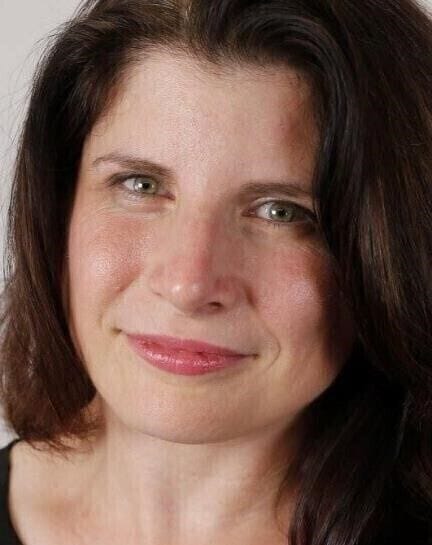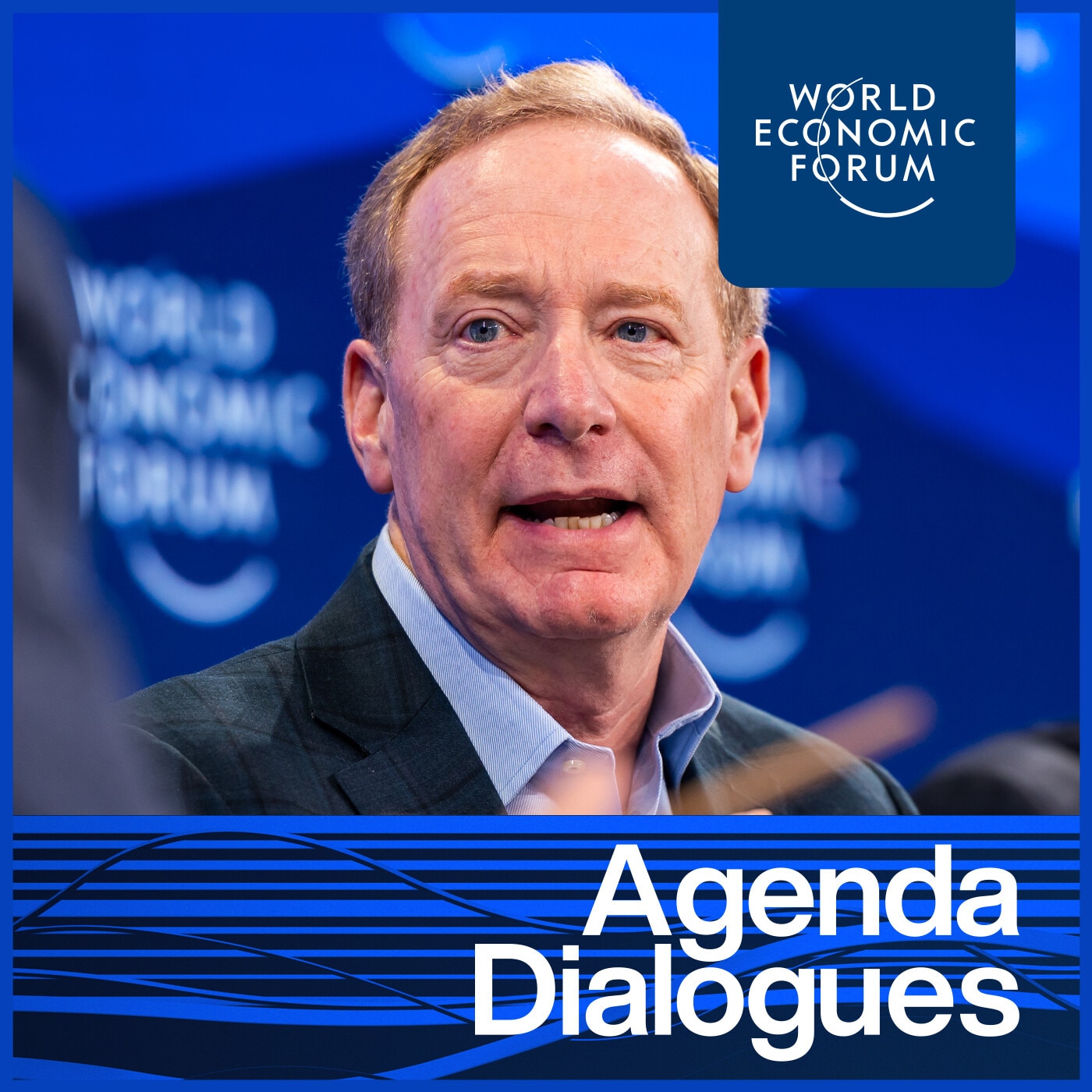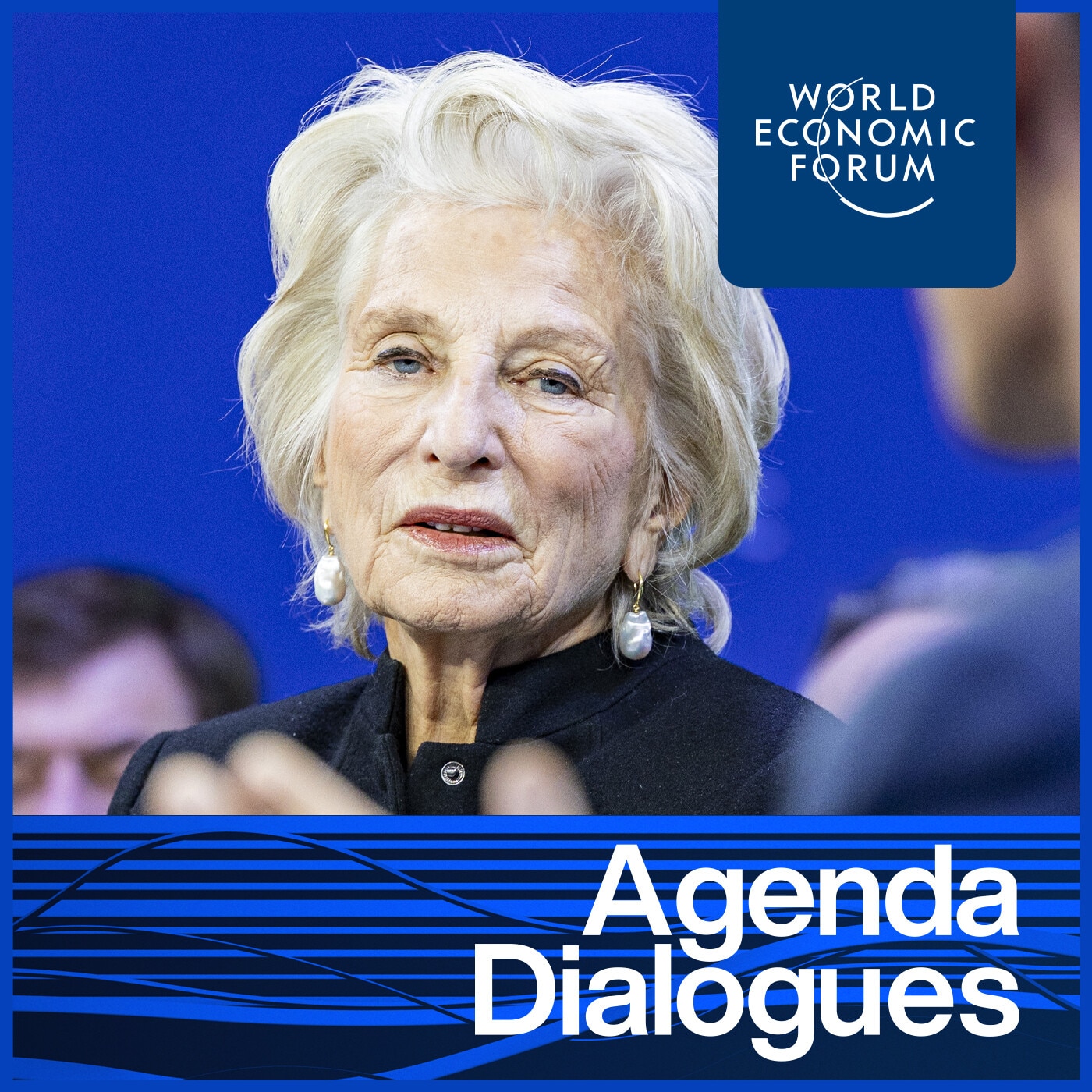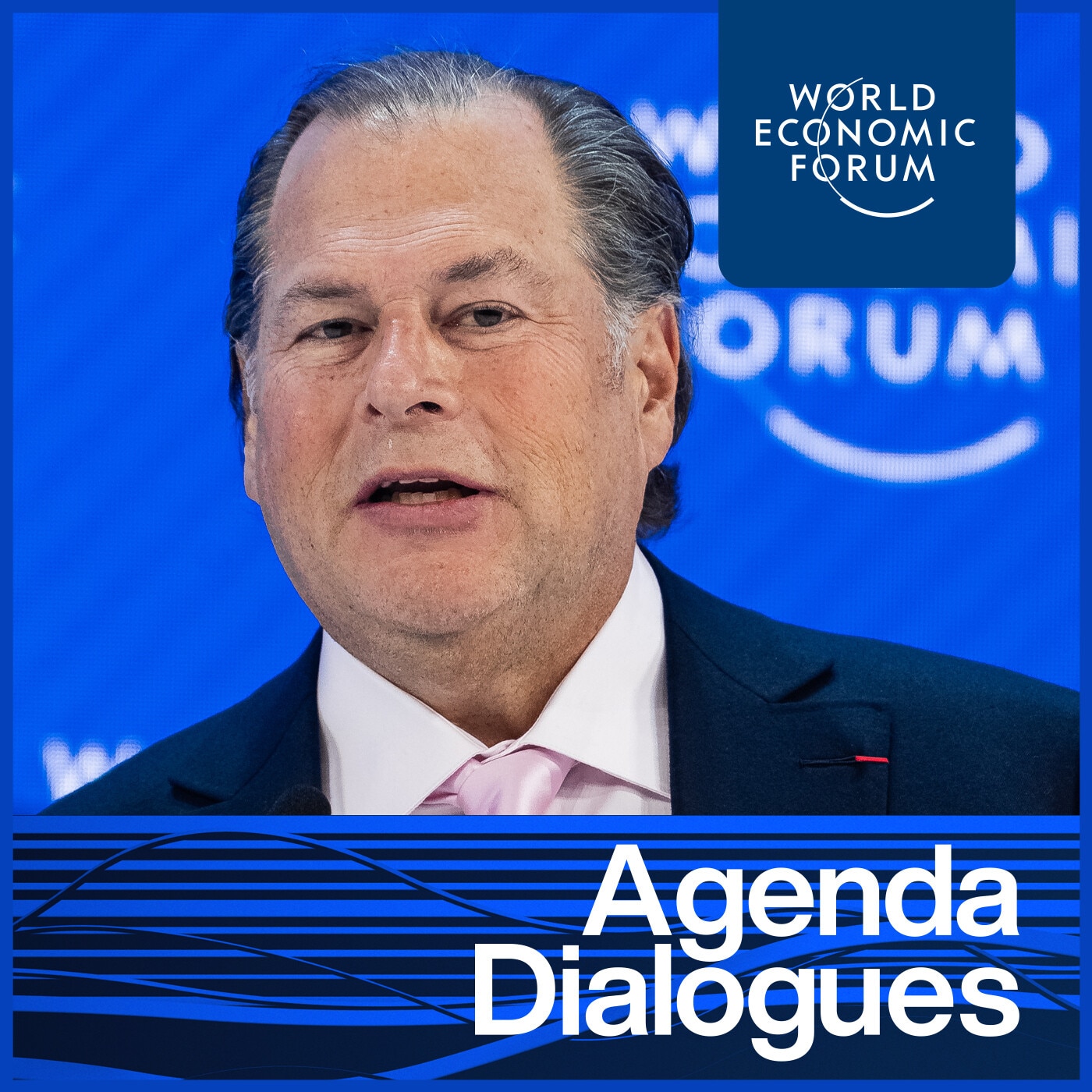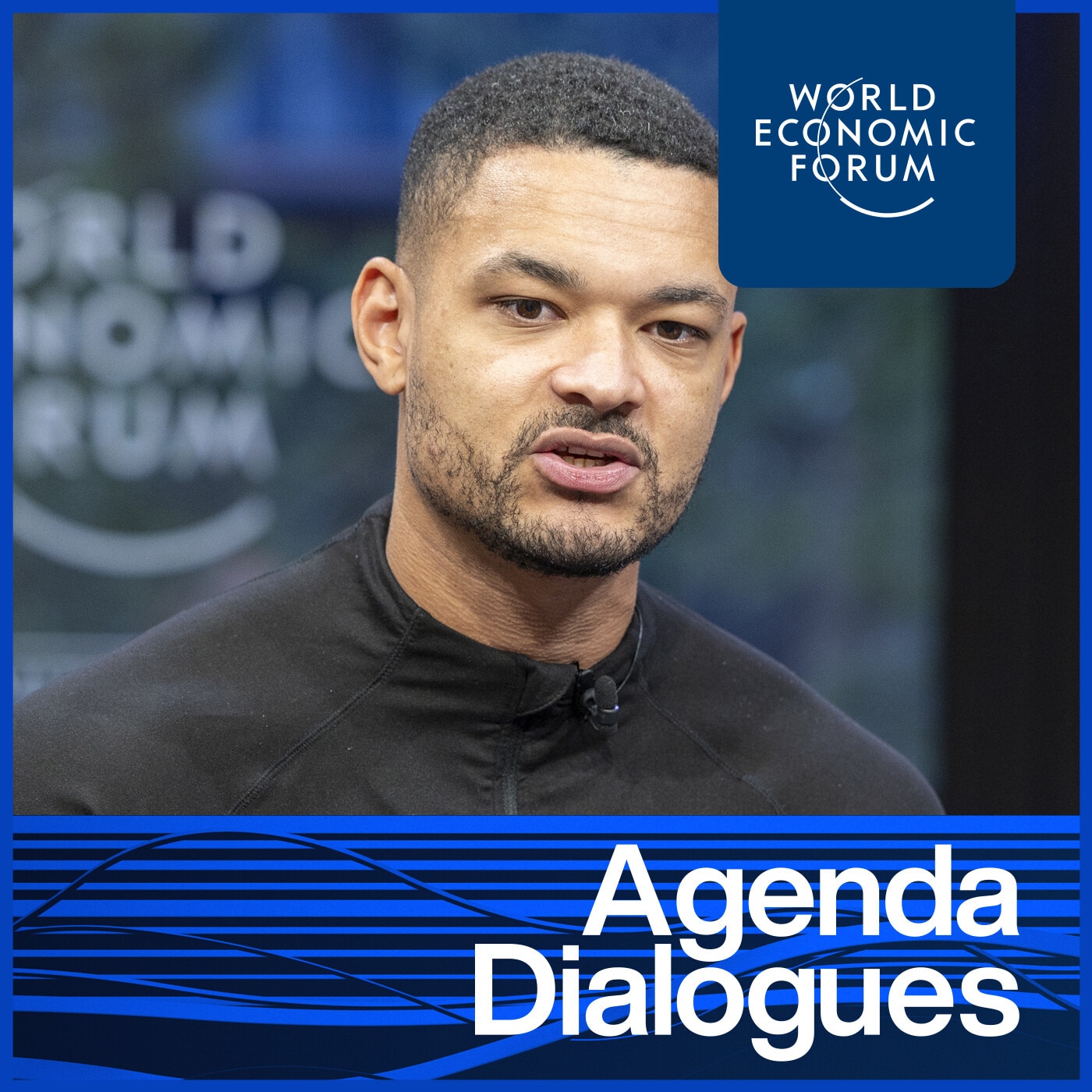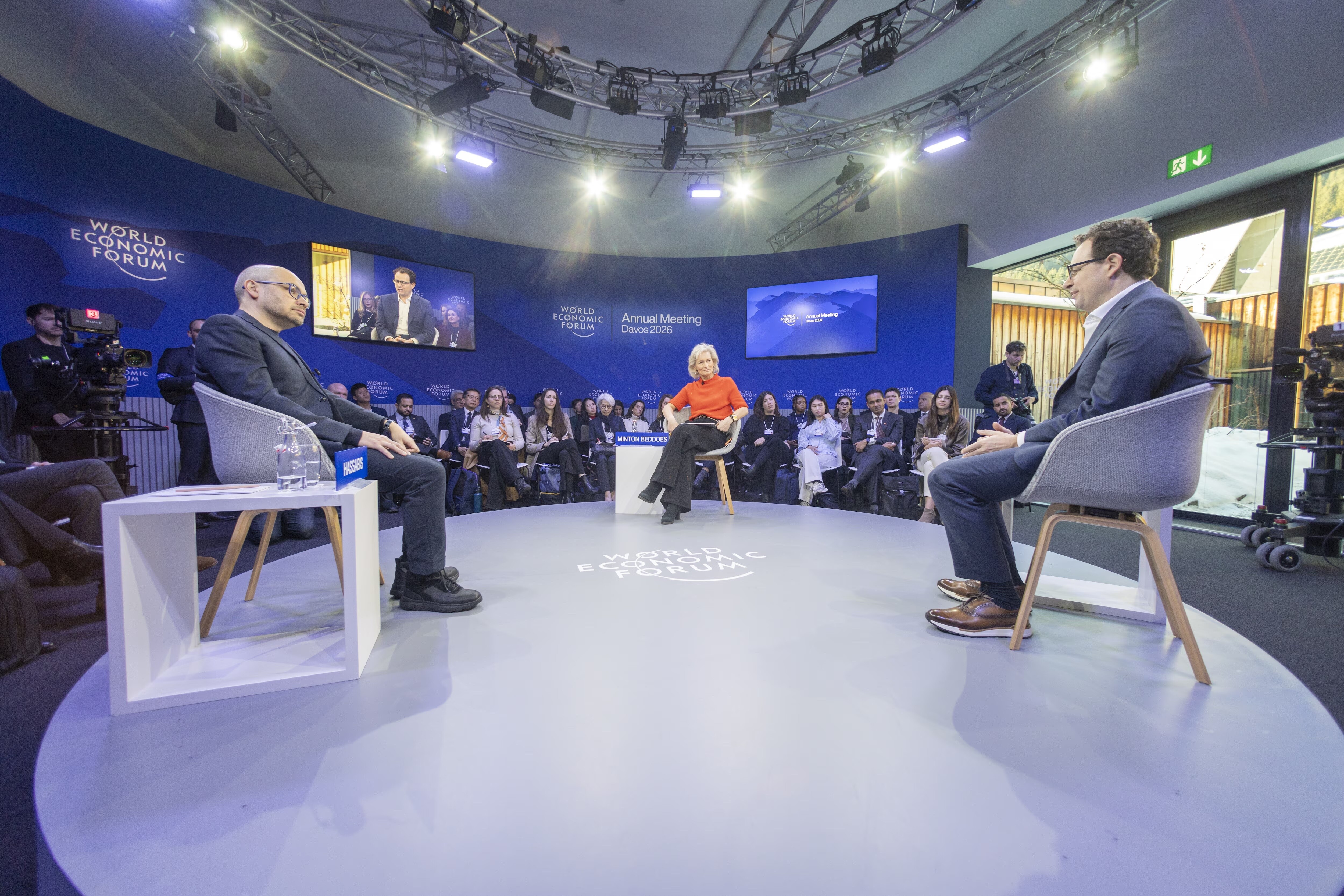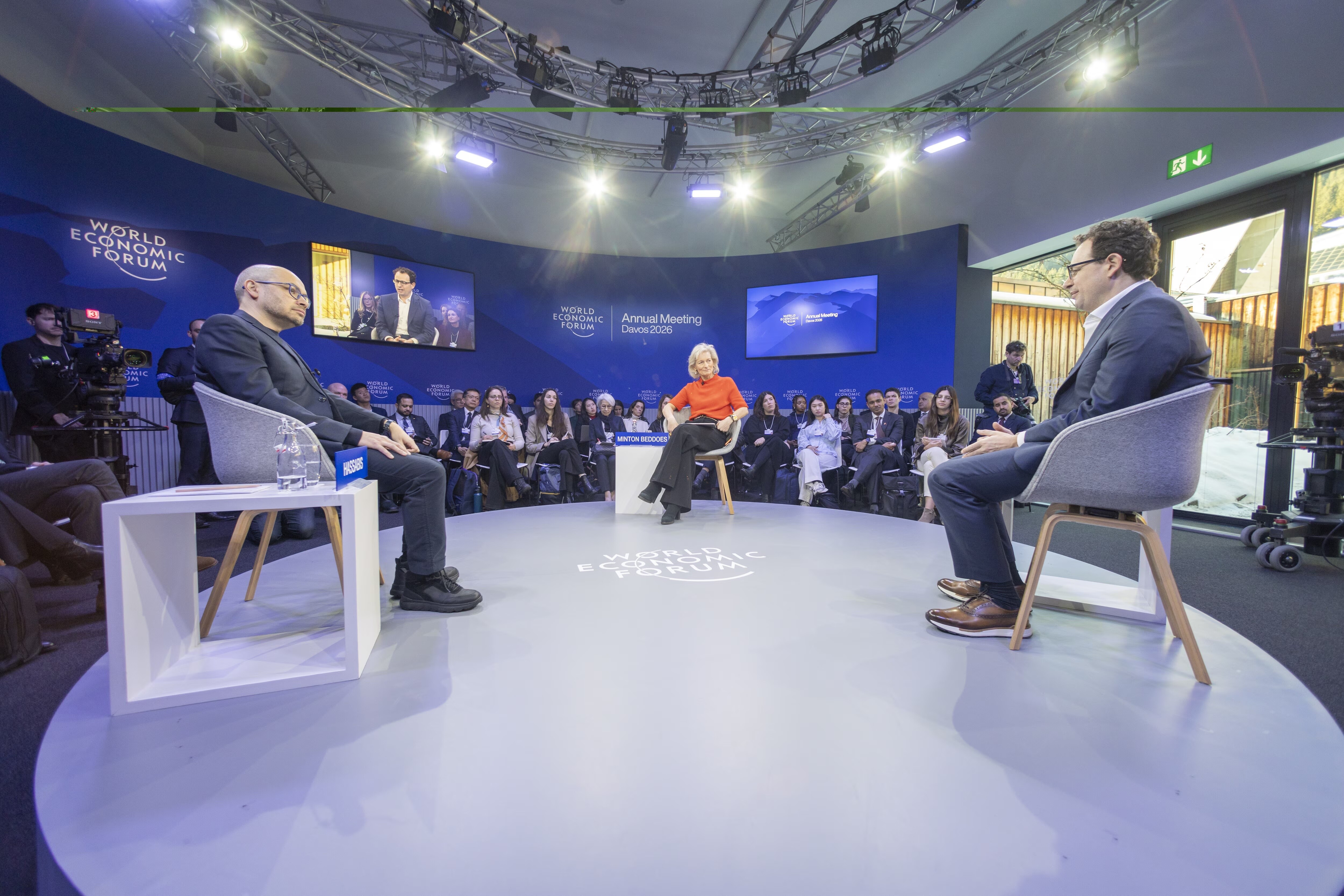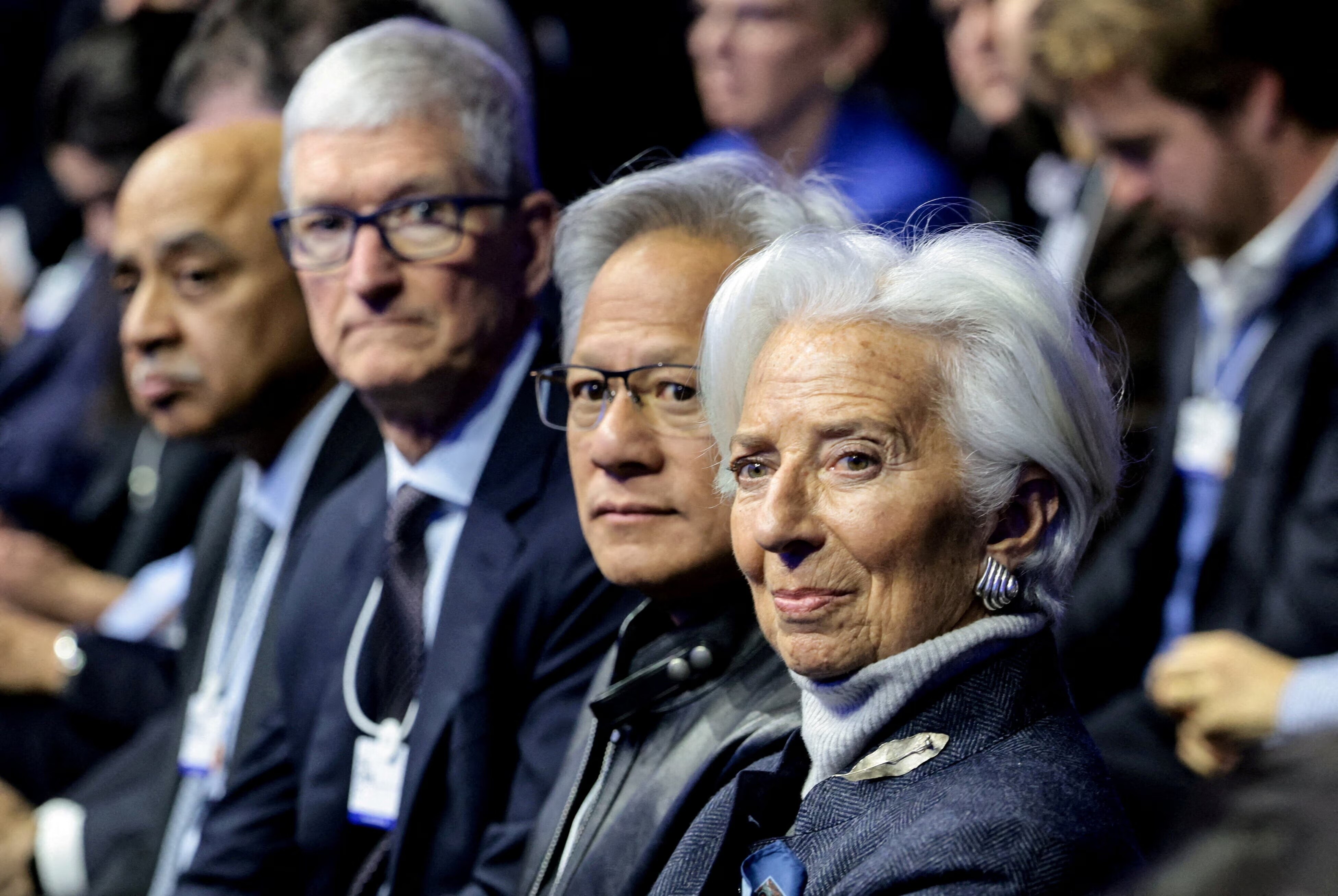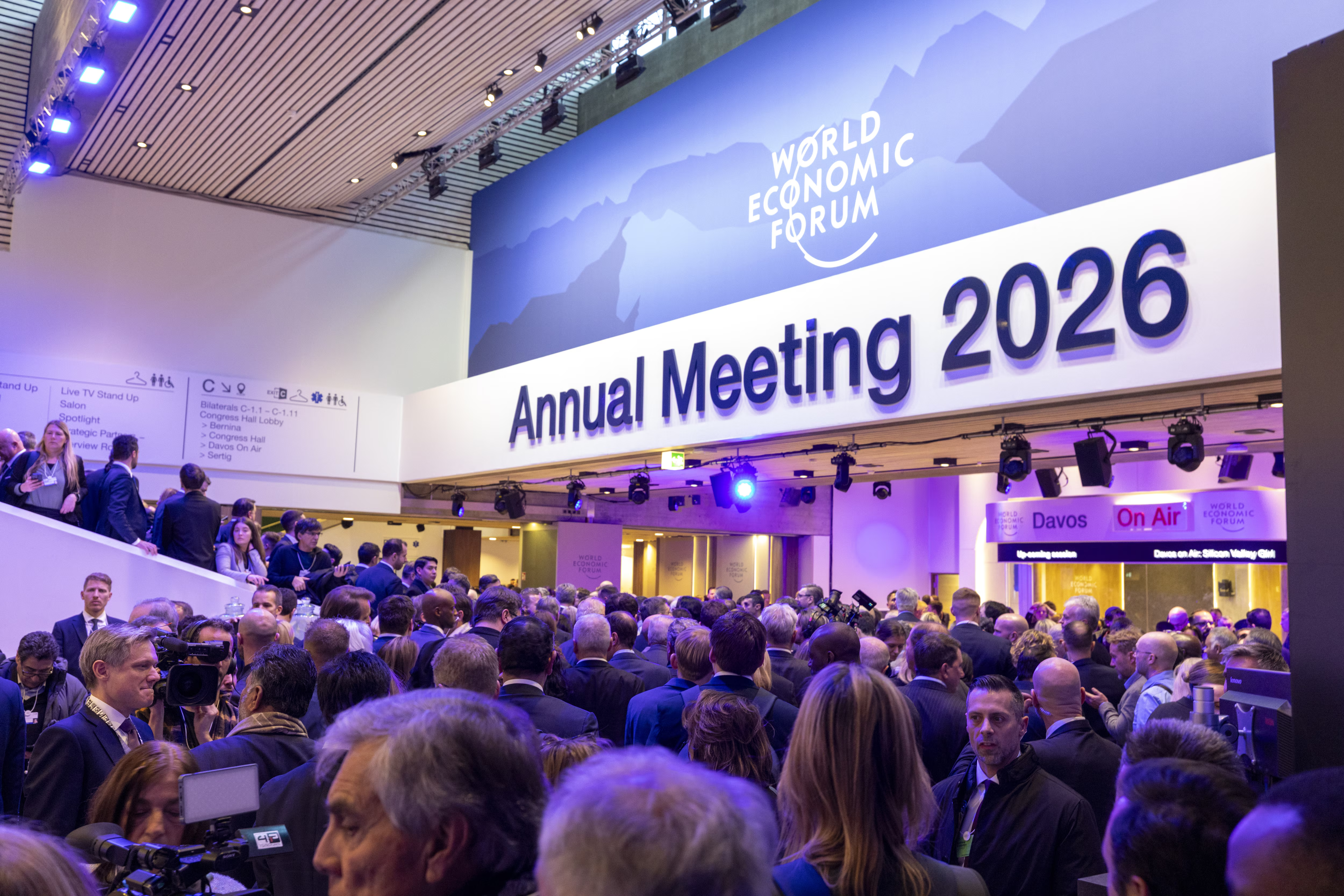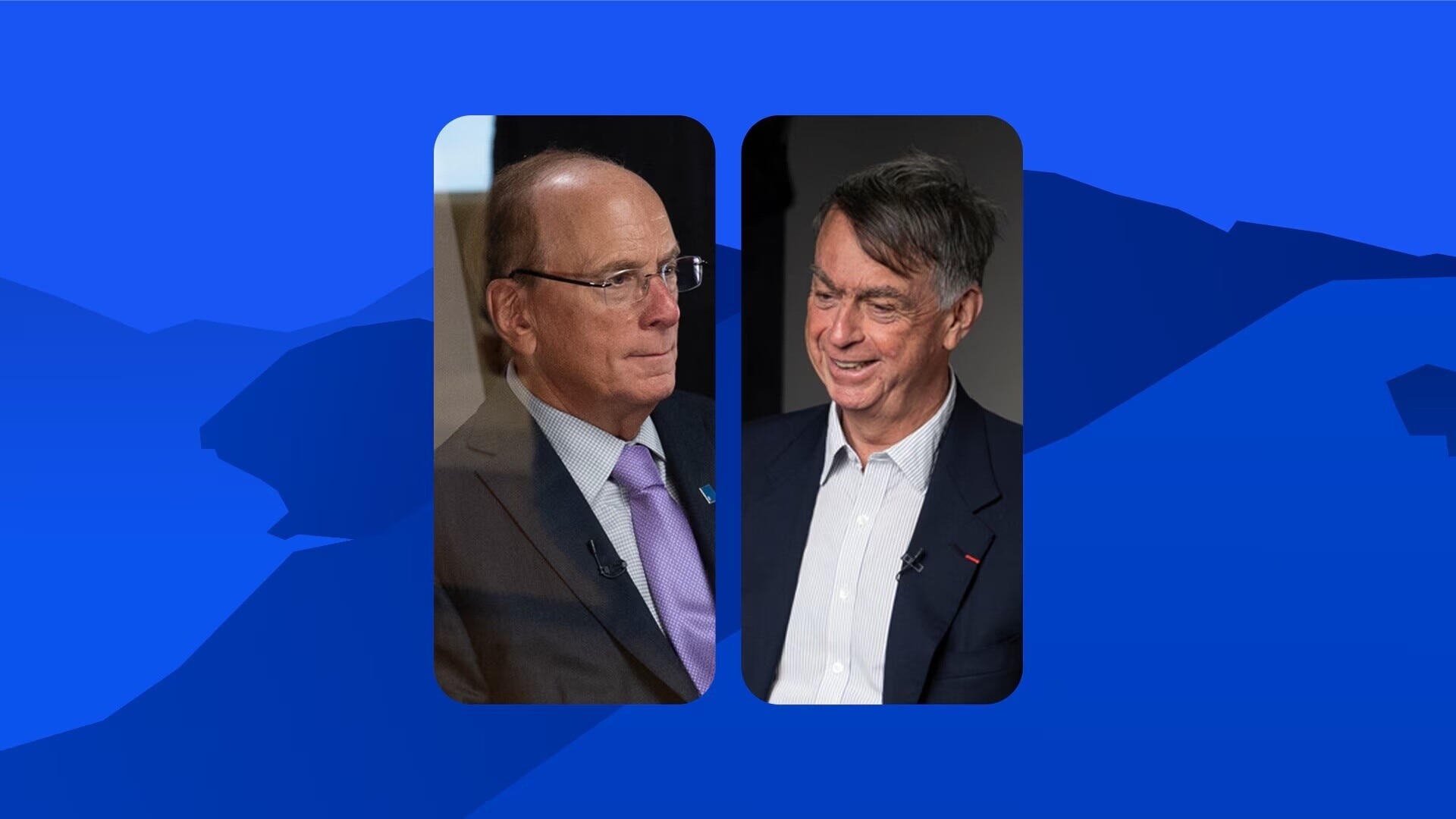Davos 2024: Town Hall: How to Trust Economics
Transcripción del podcast
Martin Wolf, Associate Editor and Chief Economics Commentator, The Financial Times: I will start by introducing the contributors to the discussion, then I will go through how we're going to proceed. But the key point is, it's going to be very much an exchange with the audience.
So we're going to have a couple of questions at the beginning and there will be a 10-minute exchange between the two panellists and then you can ask questions. I don't mind in this case if you make a point, but the point will have to be brief. We've got questions coming from a virtual audience out in the world and we want the panellists to have an opportunity to address those questions and that means you can't make long speeches.
I also think that one of the fascinating things about this is though, the two participants, Christine Lagarde, of course, who's currently president of the European Central Bank and before that was managing director of the IMF; and Michael Sandel, a very distinguished political philosopher would you say? Who's Professor of Government at Harvard University, at which point everybody says boo! And, the interesting thing about these two people, is they are both immensely distinguished and incredibly thoughtful.
And, what makes this much more interesting, they know we wouldn't regard them as professional economists, in the sense that they haven't done graduate degrees in economics. And I, the moderator have which is a very interesting situation for me to be in! And the very fact that we're doing this, shows that the question is not how to trust economics, but why is economics so damned untrustworthy? That we have to have this discussion, in which very distinguished people thinking about economics and its role in the world, can explain how to make this untrustworthy subject and untrustworthy system that they have been responsible for creating, work better.
And when we get to the discussion, we will focus on that and then we'll have an exchange with you. Now, before that, we are going to have some questions. And to address those questions, you have to get on to Slido and what you have to do is scan this QR code with your smartphone. I'm told you can do it from where you're sitting and you choose the right room at the top of the screen.
If you pass this really complex exam, you can answer one of the questions I'll give you, let's say 30 seconds for this, and then we'll get to the questions. Everybody put up your hands when you're on the Slido? Now there are some really seriously clever people, obviously young people. So a few still struggling. Yep. Okay. Okay. People are doing well.
So how much do you trust our existing economic system? What we should take into account is these people are at the World Economic Forum and that might tell you a bit about their attitude to the current economic system. Not least for the fact that they're probably doing rather well out of it. So at the moment, we've got 48% think they rather trust it; 23% definitely trust it and, well, we're getting a little more don't trust it, but still the don't trust that's a pretty fair minority. So you're gonna have to persuade them that it's as untrustworthy as you might think it is.
Have we got those well enough, can we move on to the next question? Is there another question? Yes. So, if you think there's a problem and of course lots of you think it's perfect. What do you think are the problems with it? Okay, that's interesting. Well, we're just starting, okay, and we're getting to the end sort of okay. Okay. Global inequality is interesting; environmental disaster, 15%; domestic inequalities, 13%; slow growth, 12%; lack of jobs, 5%. Now, that's a very interesting set of answers. And it seems to be stabilising around there.
So basically, they trust the system, but to the extent they don't seem to worry about global inequality. That's actually to tell you the honest truth, not what I expected. So that's educational. Now when at the end of the discussion, we plan to put these questions up again, we will see if you'll change your minds.
So what we're now going to do, is have a discussion on these questions before we go to the floor for you to make questions and comments. I'll tend to take them in groups of two or three. By the way and try to be as brief as you can. So let me start with the following question: What, in your opinion, is good and bad about economics in the economic system, is it created, inspired or influenced? And, then after discussion of that, we'll have a discussion of what's to be done about it. So let's start then, with Christine, what is good or bad about economics and the economic system that we have? Well,
Christine Lagarde, President, European Central Bank:
Thank you very much, Martin. I was going to actually preface any comments I make with the fact that I'm not an economist. by training and background, but you've taken care of that. So here goes my disclaimer, because I'm a jurist by background and certainly a lawyer by passion, but I had to deal with many, many economists and for the last 20 years of my life, I had to deal with economics. So it brings me to you know, asking myself, what is economics really about?
And going back to the basic definition, we could argue that it's the allocation of scarce resources, which has been a well served question over the last decades, by an efficiency aim, which fitted a period of time of free markets, globalization, a good advocate of which is sitting to my left, particularly in the '80s and '90s, and that as a result of that, economics in and of itself could sort things out, and that markets, in particular, would be perfectly able to achieve that efficiency goal that we had, and in a way, politics, for instance, was a distraction or politics was promoting, particularly in the advanced economies in the days when we had the North-South dialogue and difficulties, but in advanced economies, certainly politics was promoting these principles.
And I'd like to come to two points. One thing that I have observed from my vantage point now at the ECB, and previously at the IMF, which is that efficiency aim that was there has been gradually replaced over the course of time and, particularly in the last few years, by a security aspiration. So security, replacing efficiency.
And I want to take you to three examples of that. I would certainly take climate change first and the climate transition necessity, which is not driven by efficiency. which cannot be sorted out and achieved by market rules, but requires other tools, and I'll come to the tools in a minute.
That's the second point I want to make. The second area where security has prevailed over efficiency in terms of goals is energy. And, if anything has been learned from the horrible Russian aggression against Ukraine, we've learned that energy is not just a matter of efficiency, is not just a matter of supply and demand and setting of prices. It can be manipulated to the extreme and it's certainly a quest for security.
The third area, which I have and which is again, in debate and possibly under threat is supply chains, which we had taken for granted, where cost reduction and just-on-time were the key principles, and now just-in-case and security of supply and safety of the supply chain becomes the aspiration.
So with that as a background, and from my very you know, small window in the economic world, which is that of a central bank, and within mind, the first thing that I said at the first Town Hall that I attended at the ECB, which was to the economists in the room, that I didn't know very well at the time, but informed by my IMF days, and I have an IMF colleague in the back of the room who will attest to that, I said beware of models.
And, if I bring these two together of you know, security over efficiency, beware of models. What I drew from that is the fact that many of those shocks that are bringing security over efficiency are exogenous shocks, are certainly not linear developments, but are crisis or exogenous developments that have not been in models and that have led us and the ECB –the European Central Bank was the first one to admit that it had got it wrong, in a way that was not captured in our model and, therefore, gave us projections and forecasts that were out of sync with what we should have actually explored.
And, this leads me to my last point, which is that economists, not the good ones like you, Martin, but many economists are actually a tribal clique. There have been studies of, you know, quotations, cross fertilisation, cross-references, and economists I think, together with contact physicists, are the most tribal scientists that you can think of. They quote each other, men more than women, by the way, but that's another story. But they don't go beyond that world, because they feel comfortable in that world and maybe models have something to do with it. And what I think we should move towards, and I'm trying to convince my colleagues that we have to do this is, bring in people that are not members of the tribe.
If we had had more consultations with epidemiologists, if we had had, and we now have thank goodness, climate change scientists inside to help us with what's coming up. If we were consulting a bit better with geologists, for instance, to properly appreciate where some of the rare earth and resources are out there. I think we would be in a better position to actually understand the development projects better and be better economists.
Martin Wolf, The Financial Times: That's very, very interesting. I should say that myself, I have never been an academic economist and, having a terrible tendency to quote political scientists and political philosophers, I long since ceased to be a respectable economist. So, I'm, very comfortable what you said, but I do agree that many of my friends will be pretty shocked. So Michael, what's good and bad about economics?
Michael Sandel, Anne T. and Robert M. Bass Professor of Government, Harvard University: Well, let me begin with the question of trust, which is really the centrepiece of this Davos year. If we want really to restore trust in economics, what we have to do is close our eyes and try to forget the follies and the failures, of models and of mainstream economic advice over the past four decades. If you want to trust economics, you have to try to forget the self-assured promise that we were all given by the proponents of the so-called Washington Consensus of the '80s and '90s and early 2000s, that everyone would be better off if we brought about a frictionless system of global capitalism, with the outsourcing of jobs to low wage countries with low labour protections, if we deregulated finance and insisted on the free flow, even of short term capital, in and out of countries.
We were assured that this would increase the stability of the financial system. This was before the financial crash of 2008 brought that advice and assurance tumbling down. We would try to forget also the naive assurance we were all given by the defenders of this model, that the frictionless finance-driven version of global capitalism would inexorably bring countries of the world toward liberal democracy. That was a part of the model and its claims.
And one other thing we'd have to forget or forgive, Martin, would be the assurance, the conviction that there was no alternative, that the particular version of finance-driven globalization that was promoted was an article of faith by mainstream economists giving advice during that picture, was simply adapting to what was essentially a force of nature.
Margaret Thatcher declared again and again, there is no alternative. Bill Clinton said globalization is not something we can hold off or turn off. It's like the equivalent of the economic equivalent of a force of nature, like wind or water. And then there was Tony Blair, who said that globalization was as unalterable as the seasons. I hear people say we have to stop and debate globalization. He declared. You might as well debate whether autumn should follow summer.
Now, that was smug at the time. But in retrospect, it seems quaint. Climate change has reconfigured the seasons. Summer heat is coming sooner and lasting longer. Some scientists tell us that changes in the way we live mean that by the end of the century, summer may last half the year. So the line between the necessary and the possible shifts beneath our feet. And today we find ourselves having to debate and decide whether autumn should follow summer, just as I think we need now to debate and decide by what economic arrangements we want to live.
Martin Wolf, The FInancial Times: Okay. I think that given my miserable performance as a moderator here, and the fact that it shouldn't just be an exchange between us, you've had two very clear statements. Both are critical, but different. So, I would say it's fair to say that the dominant thrust of Christine Lagarde's comment is the agenda has changed, right. And it's changed naturally because the world has changed. And a big problem associated with this, but not really the core is economists are arrogant and tribal and they really believe in models of what things are, things that cannot be modelled precisely. And they believe they have a knowledge of the world which is actually impossible. I agree with all of that, by the way.
And Michael goes in a rather different direction. He basically says, I hope this is fair, this was all a terrible mistake. The last 40 years was a terrible mistake. It produced essentially nothing good, or at least you didn't mention anything. Maybe because you didn't have much time and we just have to throw this away and have a different way of doing things. Is that unfair?
Michael Sandel, Harvard University: It's a little bit unfair. Okay. I wouldn't say nothing good, but I will say and this is provocative enough, that this way of thinking in designing the economy, paved the way and bears responsibility for the populace backlash against elites and inequality and social division that we are now facing.
Martin Wolf, The FInancial Times: Since I've written a book of about 380 pages which argues for the same thing, I can't possibly disagree. So now I'm going to go to the floor. I'd like to take about three or four comments or questions. I hope to remember them. Say who you are. There is going to be a microphone, I believe. So let's see who wants to ask a question. This lady please. Could you stand up, just so that they can easily find you?
Audience member: Thank you. I am an economist for my sins, currently working at the Bank of England and also a member of the Young Global Leaders of the Forum. So, the topic question is how to trust economics, but also we've talked about how to trust economists and you've touched a little bit on the issue of diversity in economics and tribalism. And I wanted to ask more about solutions for that. Because, yes, we've been talking about diversity in central banks in other economic institutions and there's been a lot of progress on gender diversity. geographic diversity, but if everyone went to the same economic schools, that's not diversity really. So I just wanted to get your thoughts on that.
Martin Wolf, The FInancial Times: So you're saying that intellectual diversity is also important, which I strongly agree with. This gentleman, whom I happen to know a little, say who you are,
Audience member: I preside from Cornell University and I'm a dyed-in-the-wool economist. I feel compelled to defend my tribal level. Perhaps you're asking too much of my tribe. If you think about what economic models deliver, the good models really deliver powerful insights. They don't really solve all of the world's problems. And I take your point, Christine, that perhaps we take models a little too far when we think that they represent reality. No good economist, to be honest, thinks that the model represents reality. It's an abstraction from reality. And I think it's a useful way to make progress.
The difficulty is that once you deal with the messiness of the real world, especially political systems, then things become a little more complicated. The basic principles of economics sometimes get convuluted. Now, I don't stand here and blame political scientists for Trump and perhaps you shouldn't blame economists for everything that goes wrong in economies, but it's really worth thinking about whether we have thought about economics in the wrong way, rather than providing these basic insights, instead trying to encompass the failures and political systems and social systems as well.
Martin Wolf, The Financial Times: I'll take one more question. You sir. Yes, please stand up so they see come to you later from us.
Audience member: I run a company called Recycle, where we create a marketplace for plastic waste in India. My question is, if Schumpeter were alive today to witness AI and climate change, do we think that his theory would be a little different?
Martin Wolf, The Financial Times: You want to ask whether he would change his theory okay. Okay, that's an interesting way to go. I'll come to that in the moment. Could you explain why?
Audience member: I'm in the energy transition space. And you know, he says that any new technological innovation would disrupt existing jobs. How would this apply now?
Martin Wolf, The FInancial Times: Okay, I'll come to that in a minute. Okay, let me, if I may, go to the panel, then we'll probably look at the main theme. Christine, I think the question about how do we solve the problem of diversity, and particularly intellectual tribalism is very well addressed to you, since you're running one of the world's most important central banks.
Christine Lagarde, European Central Bank: First of all, thank you for the question, because I think that one of the ways to solve it is to bring it up for debate, to be vocal about it, and to recognize that if we do not make progress, we will continue to have this group thinking that doesn't work.
You know, when you are surrounded as some of you have been, are or as I have been, and still am to an extent, by the same exact kind of character, I will not describe it in details who have gone exactly to the same schools, who are roughly the same age, how do we expect new thinking or real debate?
So to talk about it, to raise your voice and the voice of young participants, like the Young Lleaders, but also to have, as much as possible, this principle of diversity endorsed at the highest level, because you have to lead from the top on that one. To have quotas in place, or at least targets to review them on a regular basis, to I mean, there are lots of tools that can be used for hiring and selecting and building the pipeline that are used by some, but not by many. And I think that, you know, everyone is accountable. I'm not going to tell you how many women I've hired, it's hard, because then you very quickly get the pushback from the white middle-aged man, who says I'm at a disadvantage, this is ain't fair.
But as you know, RBG would have said to restore parity in the Supreme Court, she was asked how many Supreme Court Justices should there be? And she said all of them should be women. And when asked why do you say that? Well, to restore parity, you have to look back at history and it has been those nine judges always of the same gender and of the same colour for many, many years at least. So it's not retaliation, it's rebalancing. I'm not going as far as that, but we really have to make efforts and I thank you for your question and I think that each and every one of us, wherever we are located, we|||||s good for yourself and feeling good about it. And it's just economic sense.
Martin Wolf, The Financial Times: Thank you very much. I'm just thinking that if that's the goal that you have you've got quite a long way to go. A 100% female ECB will take a little while.
Christine Lagarde, European Central Bank: Absolutely. I was pushing the envelope on purpose.
Martin Wolf, The Financial Times: Now, let me interrupt. The next question, I think was quite an important question, which is the sort of nasty question economists focus on. Within any economy, we could imagine it's a very complicated system, obviously, we have to make policy decisions about how high should the interest rate be now? What is an efficient tax system? And, of course, there are other issues there. Now economists would say that you can't really get at the problems of complex systems without some degree of reliance on simplifying models. You do have to understand the simplifications, there's really no way out of this with all the many questions you get asked about what policy should be and isn't that actually inescapable?
Michael Sandel, Harvard University: I don't think so. And the reason I don't think so, is that if we look at the most creative economists working today, they do not rely mainly, or in some cases at all, on simplifying models. What they do, there's a shift, I think, toward more empirical work and work that bears a closer connection to broad questions of social and political philosophy.
For example, I think there are many excellent economists doing creative work, in part by not relying on simplified doctrinaire models. Drawing our attention to whether technology is truly an exogenous autonomous force, for example, or whether it can be directed as an open political question. Paul Collier is raising the question of whether place-based economic development is an essential alternative to a single-minded focus on maximising aggregate GDP. And Angus Deaton has written about deaths of despair, looking at actual data, about the vulnerability of those without university degrees to deaths by suicide, and drug addiction and alcohol abuse.
Raj Chetty has challenged complacent ideas, that it's always possible to rise upward mobility from rags to riches by doing detailed empirical work on actual rates of mobility. What distinguishes these economists, and I think they're among the most powerful creative economic thinkers working today, is precisely, Martin that they do not rely primarily on simplified models. They look at the world, they do detailed empirical studies, animated by a broader social and political set of questions. That's where I think the hope for restoring trust in economics lies.
Christine Lagarde, European Central Bank: Can I go back to the question of diversity, it's also a chance for diversity, because models have generally attracted male economists, if only because maths is critically important. And it's notorious that young woman typically, you know, 10 to 20 years ago were not very much in STEM. Well, empirical work, research, analysis, attention to detail, is something that women are bloody good at. So that's another tool that we can use.
Martin Wolf, The Financial Times: Well, I cited all of these people in my book and I'm not here to defend economics. Thank heavens. Now should we take for granted that the innovations we're seeing at the moment are essentially disruptive in the Schumpeterian sense? Is he okay, is he in your little band thing of economists?
Michael Sandel, Harvard University: Yes. In the following respect. I disagree with his particular conception of democracy. It's too narrow, it lacks adequate sense of participation and civic engagement. But he, like the classical economists of the past, from Adam Smith to Karl Marx to John Stuart Mill, despite their ideological differences, Schumpeter was working in a tradition that did not concede economics as a value-neutral science of human behaviour and social choice. He conceived economics in the classical tradition, as a branch, as a subfield even of moral and political philosophy. So that's the kind of economics I think we need if we're to begin to trust economics again.
Martin Wolf, The Financial Times: Okay, I will move on to further questions. I'm going to take one from the floor and then I'm going to go to Slido.
Audience member: Thank you. I'm the chief economist of Allianz and a YGL. You mentioned trust and economics have a form of weird correlation. Now causality goes in different ways, but trust and trade, openness, trust and friction. So my question is, it's for Michael, but also for Christina, do you think that the new models that everybody's preaching these days –intervention, legalism, all these cold war toolbox? Do you think it will deliver better trust outcomes? Or do you think it's going to be for a short time we're going to be like, okay, it's going to be better, and then it's going to be really bad?
Martin Wolf, The Financial Times: Okay. Very good question. And please, go ahead.
Audience member: Thank you very much. I am a professor of economics and a former policymaker. Based upon my own experience, well, economics is very useful for policymaking. Without economics and economic evidence, economic policy is going to be much poorer. In that sense, what's most important, is economic evidence enough or not? So my question is very simple, what do you think of the evidence-based policy?
Martin Wolf, The Financial Times: Okay, and I'm going to ask a third question, which comes from Slido. And I'm going to combine two because they are essentially the same question. I can't deal with all of them. One said that President Milei has just completed his WEF speech, and he's said that what we need is proper libertarianism. And that's related to the second question, given where we are now, is it obvious that we need much more government or more market or something else altogether? So there are your three questions.
And I think they are actually quite related. Let's start with Michael. Obviously, you feel that the economics pursued in the last 40 years has been a catastrophe. You exaggerate and simplify. I'm a journalist for God's sake, we all do the same. So the question really is how do we change this?
Michael Sandel, Harvard University: I would say what we need and what we're experiencing really, is the return of the political. Now politics is a dangerous activity, but it's also an indispensable activity. And the scope for democratic politics was unduly constrained, even delegitimated when we were taught and assured that the model of a frictionless finance-driven, hyper-global neoliberal model would deliver benefits for everyone.
The return of the political makes those questions contestable, at least. Now, in practice, is that more government or more market? I think what the return of the political to economic debate can do is to emphasize the importance of the role of government, particularly as we've seen recently reviving antitrust legislation to deal with the economic concentration of power, especially in tech and finance.
That's government, the return of the political and also to open debates about public investment back to the question of whether the direction of technological innovation is fixed as if by nature. That's only if you assume it must be governed by the purposes of Silicon Valley, but if democratic citizens want to have a say, in directing the future, let's say of AI, what will make for good AI that will actually enhance life, rather than simply destroy jobs? We have to have a political debate and an openness to public investment to back up the results of that debate.
So what I'm calling for really is an alternative to the fixed, doctrinaire, disempowering and even technocratic idea that economic models if only we get them right, can absolve democratic citizens of the responsibility to exercise their civic agency in debating and directing the course. of technology and for that matter, the economy
Martin Wolf, The Financial Times: Because of time, this is a last question and I will address it to Christine, from Professor Takenaka, who played, of course, a huge role in trying to deal with the crisis in Japan. You will all remember his very distinguished record, and he was talking, it seems to be very, very importantly,, that part of the answer, if we're looking at it from a professional point of view, is that policy has to be properly evidence-based, rather than purely theoretical. Do you agree with that strongly, and how well do you feel when you look around the world we're getting there?
Christine Lagarde, European Central Bank: I would indeed agree with his point that policies have to be evidence-based. And this is what we have been arguing as a central bank, arguing that we have to be data dependent, that we have to be very attentive to developments and to the point that was being made about, you know, don't accuse us of too much and don't expect too much of us.
I'm not saying that models should be discounted completely and shouldn't be set aside and forgotten about and that we should move exclusively to empirical data and judgement calls and discretion. I think that number one, we should work on those models to improve them. Number two, we should appreciate and understand that they will inevitably, given the way they're constructed, they will have an element of wrong about them. Therefore, we should not assume that they will give us the answer, but they will be good in helping us reach the judgement that should be either contradicted or corroborated by data, by empirical data, by observation, by judgement. And that it's a way to probably mitigate the sort of blind faith that we had for too many years, I think, in what models could deliver. But I'm not you know, throwing them away. Yes, they can be informed. Yes, they have to be supplemented. There are lots of things that you can use, sensitivity analysis, scenario analysis, all the rest of it. I just want to respond to what will be the return of politics, if we do not have the return of citizens? People don't go to the ballot box because they're uninterested and disenfranchised. What is the return of politics? I'm concerned about that?
Martin Wolf, The Financial Times: Do we have time for asking two questions and then I will conclude. I'm sorry that this getting to the end, So could you put to them the two questions to see whether your views have radically changed. So how much do you trust our existing economic system after you've heard this erudite discussion? Not quite, 40 to 47.
Well, I would say that Michael has made a dent in this audience given that it's in the WEF. And yeah, so congratulations. At least because I wasn't allowed to debate you and let's move to the next one. Can we do the other question? What is the biggest problem? Still global inequalities and environmental disasters, I think have gone up oh maybe not.
Michael Sandel, Harvard University: We had a missing option here. And the missing option was, is the current economic system, does it help or hurt the prospects of democracy? Next year can we include that?
Martin Wolf, The Financial Times: I think this has been a very, very rich discussion. I wouldn't even dream of going into this. I've made two points. And only I know I shouldn't. One of them is, I think a lot of what Michael says about the past is true. But and it's a very big but for me, the big argument for globalization, I read a whole book about it, was on what it would do for development. And I don't think anybody can deny it had some sensational development results, and among them, incomparably the biggest decline in extreme poverty in world history.
And to me, as a globalist sorry, I think we should care about other people's global inequality. That's quite important. And I don't want to throw it away in the protectionist flood we're now getting to.
And, the other point I would make, which gets to the real methodological heart of it is of course models must be data-based. The difficulty is data, believe it or not, comes from the past. The amount of data we have on the future is quite small. And it comes in the form of expectations and they are always wrong and that means we do need data. We need to understand data, but they have profound and fundamental limits in telling you about what's going to happen.
And I think that has come out very clearly in the debate on the inflation that we've just had because it was out of sample. It was out of sample, and the point I made and all these points about citizenship and all the rest of it are deep and important. I'm deeply invested in this democracy idea, but we do want to manage our society in some way and economics is a big part of it. And that the tragic problem, which is inescapable, is that it's a problem that we fundamentally cannot solve, because of the economy and the decision-making economy is about the future and we don't know much about the future. And if economists are clear about that, that might be very, very helpful. So it is a subject in this respect, doomed to fail. And with that, with that, let me conclude and thank the panellists for a wonderful discussion.
Long-standing economic tenets are being challenged by ongoing shocks, geo-economic tensions and supply chain reconfigurations.
How can we adapt to changing economic realities, to ensure long-term and equitable growth?
Join this interactive town hall with leaders to explore promising approaches to adapt to new economic realities.
This conversation was recorded January 17, 2024 at the Annual Meeting in Davos, Switzerland.
Speakers include: Michael Sandel, Anne T. and Robert M. Bass Professor of Government, Harvard University; Martin Wolf, Associate Editor and Chief Economics Commentator, The Financial Times; Christine Lagarde
President, European Central Bank.
Watch the full session here: https://www.weforum.org/events/world-economic-forum-annual-meeting-2024/sessions/town-hall-how-to-trust-economics
Alojado por:
Más episodios:
La Agenda Semanal
Una actualización semanal de los temas más importantes de la agenda global
Más sobre Foro en focoVer todo
Ian Shine
11 de febrero de 2026
